|
I was recently in a discussion where some women who had not breastfed their first child said they wanted to try to breastfeed their second child. This is a topic close to my heart as I didn't succeed in breastfeeding my eldest child, but am enjoying a great breastfeeding relationship with my second child who turned two last week. I want to pass on some of the things I learned in my journey).
Here is my TOP TEN to-do list for parents who want to succeed in breastfeeding their next baby:
Anyone else got any tips / ideas / anecdotes to pass on? I would love to hear them! (As you may have guessed, I am passionate about helping women breastfeed. I completely understand that some women can't breastfeed exclusively: but for the small minority of women who don't produce enough/any milk, I want them to know that a breastfeeding relationship is still possible - breasts are way more than just milk! And I want for EVERY woman to have the option of choosing donor milk should they wish. I have written in more detail about my breastfeeding experience here.)
0 Comments
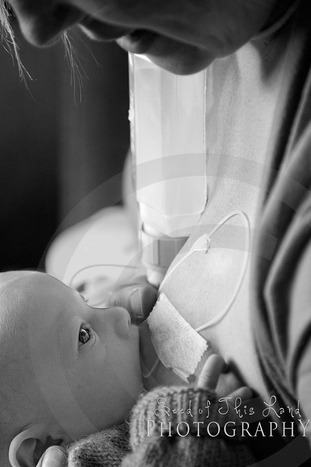 Two weeks old using an SNS. Photo by Robin Atherton. Two weeks old using an SNS. Photo by Robin Atherton. My story is part of the Blog carnival organised by World Milksharing Week, to celebrate World Milksharing Week 2013. Click here to read more stories about milksharing. If you’d like to participate too, please visit this page. When I was pregnant with my first child I learnt about how amazing breastmilk was. It’s pretty much liquid gold. I was determined to breastfeed. To my distress, things didn't go as planned. Due to many factors, my son Sol was given formula within 6 hours of birth, and although I did everything within my knowledge at the time Sol was fully formula-fed from six weeks. Failure to breastfeed long-term traumatised me on many levels. Many people didn't understand this – I was told by many “formula’s fine, he’ll be fine”, which of course it was, and he is. But this attitude undermined and invalidated my grief. Yes, formula’s “fine”, but it is not what babies were born to consume, and science indicates that the detrimental effects are numerous. (For example, it is estimated that the U.S. might save $13 billion in healthcare and other costs annually, and save over 900 babies a year if 90% if babies were exclusively breastfed for six months.) Breast isn't best, it's normal. When I was pregnant with my daughter last year I devoured every book I could find on breastfeeding. I spent a lot of time researching, understanding and finding support in my community so that I knew I had done everything I could to breastfeed my next baby. I learnt about the many things that did and did not happen in Sol’s first few days and weeks that contributed to him not being a breastfed baby. During this time I also learnt about breastmilk sharing. The World Health Organisation and UNICEF support donor human milk as the first alternative where mother's milk is not available. I decided that should I need to supplement my milk, I would do my best to find my baby human milk. Everything about Nina’s birth was wonderful (birth story here). She even did a breast crawl and latched herself on. I was in awe of her, my amazing beautiful baby. But after that first feed, I had a painful blister on my nipple. Luckily I had a fantastic midwife and she diagnosed a tongue-tie immediately. (I was later to find out Sol is also tongue-tied, which goes a long way in explaining why he never suckled and had trouble with a bottle). Thus began a journey that involved much blood (my nipples), travel (Wellington and Hamilton for Nina’s tongue laser surgery), many many sleepless nights as poor Nina tried to drink with severely restricted tongue mobility, and many many tears (hers and mine in equal parts!). By day 10 Nina had not gained enough weight and we were faced with the prospect of formula. In tears, I told my midwife that I wanted to try and find human milk for Nina. I knew the effects of non-human milk on an infant gut, and I wanted to do all I could to avoid that. My wonderful midwife fully supported this decision. I posted a request for breast milk on my local parenting group Facebook page and within 20 minutes I had offers of milk from a number of women. At that point I sat on the couch crying at the sheer generosity and amazingness of people. My husband sat with me and was similarly amazed and overwhelmed at this community of mamas. Within two hours a very special woman arrived with over a litre of breastmilk. That was a really emotional moment for me, and in fact every time we had a delivery of frozen bags of milk I got teary with gratitude. I also reached out to the Eats on Feets Aotearoa community, who were similarly incredibly supportive. A wonderful side-effect of milk sharing are the beautiful connections I made with many women. Throughout the time we were supplementing with donor milk I was worried about “nipple confusion” so I avoided using a bottle and fed Nina the donor milk through a supplementary nursing system. This had the added bonus of extra time at my breast, further stimulating my milk supply. It took 13 weeks, and my milk combined with five superstar milk-mamas until we got the tongue-tie sorted and I was able to exclusively breastfeed Nina. We’re still going strong at 11.5 months and she has still never had any formula. Going beyond the nutritional benefits of breastmilk, I feel just so grateful to have experienced the simplicity and beauty of a breastfeeding dyad. My body responding to Nina and her needs in the most simple and perfect way. Watching her eyes roll back in pure drunken happiness as the milk fills her belly is one of my life’s most beautiful moments. Now that she is older, I love her ways of communicating to me that she needs milk, and the delighted grin on her face afterwards as she toddles away. She looks round the room grinning delightedly at everyone who will look at her, as if to say “that was DELICIOUS!” People have started to ask me when we are going to stop breastfeeding. I tell them to ask Nina. She is still a huge fan, so I don’t think it will be any time soon. The World Health Organisation recommends that children are breastfed for a minimum of two years. I am immensely proud that we have made it this far together and I love the idea of full-term breastfeeding and Nina choosing when she is ready to wean. (Oddly enough I still feel anxious putting that dream out there in to the universe, as it I still can't quite believe we have made it this far!) When I was receiving donor milk for Nina, I imagined one day being able to donate my milk to other babies in need. I am not sure I ever believed that day would come. But it has, and I feel so emotional packaging up my precious packs of frozen gold, ready to nurture another baby. I am thankful for the vocal and passionate supporters of breastfeeding and breastmilk sharing. I am thankful for the oodles of research readily available showing the detrimental effects of non-human milk on babies. Knowing this meant I was that much more determined to fight the fight for Nina. I wish I had known this much when Sol was first born. I am thankful for my family and friends for their breastfeeding wisdom, support and cheerleading. I am grateful to my wonderful midwives and lactation consultants who believed in Nina and I, even when I didn’t, and gave me so much knowledge, skill and support. And most of all I am so grateful to Nina’s five Milk-Mamas who selflessly gave up their time and energy to pump their precious milk to nurture Nina. It is hard to put into words how much this meant to us. We love you! Milk-sharing absolutely epitomises the saying “it takes a village to raise a child”, and I know that Nina is growing up in one awesome village. EDIT: A few people have emailed me to ask about donating milk and how to go about doing this. If you are in a position to do this, I highly encourage you to do so. It's hard to put into words how much the donated milk meant to us, it is such a beautiful gift to give. Here are some links to check out:
|
AuthorRachel is a writer and educator whose fields of interest include sexuality education, gender, feminism and youth development. Archives
November 2023
Categories
All
|
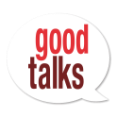
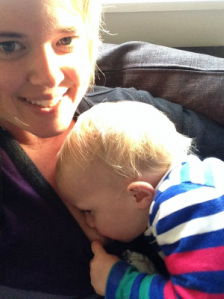
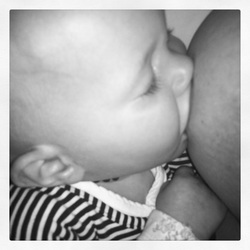
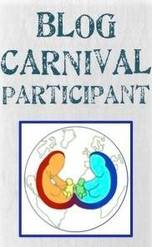
 RSS Feed
RSS Feed




